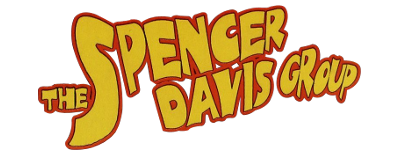Members
 5 Male
5 Male
Origin
 Birmingham, England
Birmingham, England
Genre
 Psychedelic Rock
Psychedelic Rock
Style
 Rock/Pop
Rock/Pop
Mood
---
Born
Origin
Genre
Style
Mood
---
Born
![]() 1963
1963
Active![]() 1963 to Present...
1963 to Present...
Cutout![]()
3 users
3 users
3 users
3 users
3 users
Artist Biography
Available in:
The Spencer Davis Group are a mid-1960s British beat group from Birmingham, England, formed by Spencer Davis with Steve Winwood and his brother Muff Winwood. Their best known songs include "Somebody Help Me", the UK number one "Keep on Running" (both of which were written by reggae musician Jackie Edwards), "I'm a Man" and "Gimme Some Lovin'", which peaked at #2 in the UK and #7 in the United States.
Steve Winwood left in 1967, to form Traffic before joining Blind Faith, then forging a career as a soloist. After releasing a few more singles the band ceased activity in 1968. Davis started a new group in 2006. The Spencer Davis Group was formed in 1963 in Birmingham when Welsh guitarist Spencer Davis recruited vocalist and organist Steve Winwood and his bass playing brother Muff Winwood. The group was completed with Pete York on drums. Originally called the Rhythm and Blues Quartette, the band performed regularly in the city. In 1964 they signed their first recording contract after Chris Blackwell of Island Records saw them at an appearance in a local club; Blackwell also became their producer. Muff Winwood came up with the band's name, reasoning "Spencer was the only one who enjoyed doing interviews, so I pointed out that if we called it the Spencer Davis Group, the rest of us could stay in bed and let him do them."
The group's first professional recording was a cover version of "Dimples", but they came to success at the end of 1965 with "Keep On Running", the group's first number one single. In 1966, they followed this with "Somebody Help Me" and "When I Come Home". They had one single issued in the US on Fontana, as well as "Keep On Running" and "Somebody Help Me" on Atco, but due lack of promotion, none of these 3 singles got airplay or charted.
For the German market the group released "Det war in Schöneberg, im Monat Mai" and "Mädel ruck ruck ruck an meine grüne Seite" (the first is from a 1913 Berlin operetta, the second is a Swabian traditional) as a tribute single for that audience, Davis having studied in West Berlin in the early 1960s.
By the end of 1966 and the beginning of 1967, the group released two more hits, "Gimme Some Lovin'" and "I'm a Man". Both of them sold over one million copies, and were awarded gold record status. These tracks proved to be their two best-known successes, especially in the U.S. (where they had signed to United Artists). Jimmy Miller was their producer.
In 1966 the group starred in The Ghost Goes Gear, a British musical comedy film, directed by Hugh Gladwish, and also starring Sheila White and Nicholas Parsons. The plot involved the group in a stay at the childhood home of their manager, a haunted manor house in the English countryside. The film would later be considered a mistake by Winwood.
In 1967, Winwood left to form Traffic; his brother Muff moved into the music industry as A&R man at Island Records. In a joint venture, the soundtrack to the film Here We Go Round the Mulberry Bush featured both the Spencer Davis Group and Traffic. After the Winwoods' departure, the Spencer Davis Group regrouped with the addition of guitarist Phil Sawyer (ex-Les Fleur de Lys) and keyboardist/vocalist Eddie Hardin (ex-A Wild Uncertainty). This line-up recorded several tunes for Here We Go Round The Mulberry Bush and released the "Time Seller" single in July 1967; the b-side, "Don't Want You No More," also received radio airplay.
This was followed by "Mr. Second-Class" in late 1967, which received heavy airplay on Radio Caroline (at that time one of the two remaining pirate radio ships off the British coast), and the album "With Their New Face On" in 1968. At that time Ray Fenwick had replaced Phil Sawyer.The group's last minor hit, "After Tea", was released at the same time by the German band The Rattles, providing competition that led finally to a temporary stop to all activities of the band. The song was originally recorded by the Dutch group After Tea, which included guitarist/singer Ray Fenwick.
Wide Thumb
Clearart
Fanart

Banner

User Comments
 No comments yet..
No comments yet..

 60%
60%









